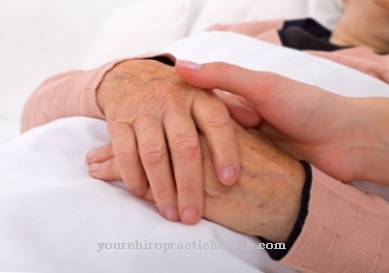Under the Korsakoff syndrome Doctors understand a form of memory disorder (amnesia), which is one of the mental disorders. The patient has great difficulty memorizing what has been experienced or learned. Korsakoff's syndrome often occurs as a result of long-term alcohol abuse.
What is Korsakoff Syndrome?

© Pfluegler photo - stock.adobe.com
The Korsakoff syndrome, alternatively also Korsakov's disease or amnesiac psychosyndrome called, is a mental disorder. More precisely, it is a form of amnesia (impaired memory).
While amnesias in general can affect either older memories or new experiences, patients with Korsakoff syndrome have particular difficulties with recent or even current events. In severe cases, information cannot be retained even for a few seconds. The resulting gaps are then filled with old or made-up memories.
In addition to such mere memory gaps, Korsakoff's syndrome can also be accompanied by severe fatigue, mood swings and motor disorders. It is not uncommon for Korsakov's disease to develop as a result of an alcoholic illness. In the chronic stage, the damage to the brain is usually so severe that normal function cannot be restored.
causes
In many known cases this has been Korsakoff syndrome caused by years of alcohol abuse. The disease is therefore one of the most serious brain and memory damage that can occur in connection with alcoholism.
It can also be caused by a traumatic brain injury, poisoning, cerebral haemorrhage or certain infectious diseases such as typhoid. The actual Korsakoff syndrome is often preceded by a so-called Wernicke encephalopathy. This is a vitamin B1 deficiency, which can also be caused by alcoholism (alcohol disrupts the metabolism and thus the absorption and utilization of vitamin B1, among other things).
Symptoms such as memory loss, motor impairments or eye twitching can be alleviated by increasing the amount of vitamin B1. If the Wernicke encephalopathy remains untreated, it can turn into a chronic Korsakoff syndrome, the treatment of which is much more difficult.
Symptoms, ailments & signs
Korsakoff's syndrome is a serious psychiatric syndrome that is mostly caused by excessive, long-term alcohol consumption, often in connection with malnutrition. Chronic alcohol abuse in particular can trigger the syndrome. Poor nutrition, on the other hand, can further accelerate the syndrome.
Even one-time excesses of alcohol with poor physical constitution can lead to a sudden occurrence. Korsakoff's syndrome is also a type of memory loss that can vary in severity. While in many cases the long-term memory is still in tact, the short-term memory is clearly affected.
Once Korsakoff's syndrome occurs in association with an alcohol-related stroke or collapse, long-term memory loss can sometimes be seen as retrograde or anterograde amnesia. This is particularly reflected in the language used by the patient, so that a more or less severe Wernicke aphasia can also occur. The language can sound slurred and contains unmotivated repetitions.
Voice information received is not processed correctly or incompletely. This is primarily due to the Wernicke region of the brain. Much is quickly forgotten or does not get into long-term memory, which can also be read from language. Articulation problems can also arise, which, depending on the severity, resemble those of drinkers. Korsakoff's syndrome is considered irreversible after the patient has recovered for a certain period of time. Those affected are considered to be in need of care or even helpless.
Diagnosis & course
The attending physician can provide a Korsakoff syndrome diagnose in particular on the basis of the severity of the memory disorders. Pronounced short-term memory disorders can indicate Korsakoff syndrome, especially if there is an alcohol addiction.
This is especially true if other symptoms such as a disturbed sense of time, motor disorders or an increased feeling of cold are also present. To rule out other diseases of the brain, the individual medical history should be considered in detail. In addition, computed tomography can take place, which provides information about the state of the brain.
A blood test will determine whether there is a vitamin B1 deficiency. Damage that has already been caused by Korsakoff syndrome is generally considered irreparable. If treatment is given early, the function of the affected brain regions can be improved, if not completely restored.Nevertheless, patients with Korsakoff syndrome often remain a nursing case.
Complications
First and foremost, Korsakoff's syndrome leads to very severe memory disorders. As a rule, those affected cannot remember certain events and can also deny what happened. It is not uncommon for Korsakoff's syndrome to lead to psychological complaints or depression. Korsakoff syndrome also often restricts social contact.
The syndrome also leads to severe exhaustion and fatigue in the patient. It is not uncommon for those affected to suffer from mood swings. The resilience of those affected also decreases sharply due to Korsakoff's syndrome, so that the patients can usually no longer perform their usual everyday activities. In most cases, it is also no longer possible to carry out a professional activity due to the illness.
As a rule, the further course of the syndrome depends on the severity of the damage. In some cases, treatment can no longer take place. In any case, patients must stop alcohol abuse to prevent further harm. With the help of various therapies, certain memories can be restored. However, complete healing cannot be guaranteed.
When should you go to the doctor?
People who have consumed a large amount of alcohol every day for an extended period should see a doctor. If these people suffer from withdrawal symptoms or problems coping with everyday life as well as memory disorders, a doctor's visit is necessary. If experienced events, memories or newly acquired skills cannot be correctly recalled from memory, the person concerned needs help. If memory lapses occur or personal facts can no longer be fully reproduced, a doctor should be consulted. Patients with Korsakoff's syndrome cannot remember new developments in their lives.
It is also not possible for them to remember past events. They often vehemently deny incidents. A doctor is required so that an extensive examination can be initiated. If confabulation develops, a state in which existing memory gaps are filled by free thoughts and invented stories, a doctor's visit must be made.
Disorders of orientation or poor physical hygiene are indications that indicate irregularities. Is a doctor should be consulted so that the person concerned receives adequate medical care. If the patient suffers from listlessness, exhaustion or increased tiredness, a doctor should be consulted. Consult a doctor in the event of a depressed mood, changing moods, apathy, loss of appetite or other behavioral problems.
Treatment & Therapy
Are in a patient the signs of a Korsakoff syndrome established, it is highly likely that drug therapy will be initiated first. As part of this, the person affected is given high doses of thiamine (vitamin B1), which can be done intravenously or in tablet form.
If the disease has not yet progressed very far, a rapid and significant improvement in the state of health can be achieved in this way. In a chronic stage of Korsakoff's syndrome, drug therapy is usually unsuccessful. In principle, the damage that has already occurred in the brain is considered irreparable, which means that full memory cannot be restored even through intensive therapy.
However, there are approaches that can improve the patient's memory function. This includes a constant memory training in which the person concerned is playfully encouraged to remember. Working up your own biography can also be helpful. If the cause of the Korsakoff syndrome is alcohol, it should be treated in parallel in order to avoid further progression of the disease.
You can find your medication here
➔ Medicines against memory disorders and forgetfulnessOutlook & forecast
Korsakoff syndrome is a brain disease. This manifests itself in a decline in memory performance. Those affected make up some supposed memories.
Anorexia or years of alcohol abuse often lead to encephalitis. The encephalitis can precede Korsakoff syndrome. This is often triggered by a severe vitamin B deficiency. One then speaks of a Wernicke-Korsakoff syndrome. This is only partially treatable and can hardly be revised.
Korsakoff syndrome can also have causes unrelated to alcoholism. The causes of Korsakoff syndrome are strokes, severe skull injuries or tumor formations in the brain. Viral infections can also trigger Korsakoff syndrome. The prognosis for those affected is also bad here.
The chances of recovery depend in part on the severity of Korsakov's syndrome. The harder it is, the worse the prognosis. If the course is less severe, the symptoms of Korsakoff's syndrome can be treated. But they usually do not go away completely. The memory performance remains permanently reduced.
The disease is chronic. Most of those affected no longer regain their usual state. Many patients with Korsakoff's syndrome are in need of permanent care. For some, however, the confused condition can be improved by giving them vitamin B1. The prognosis can only be improved if the alcohol dependence, the underlying illness or the eating disorder are permanently overcome.
prevention
To one Korsakoff syndrome To prevent (and avoid other sometimes life-threatening diseases), it is of course advisable to avoid alcohol abuse, especially over a longer period of time. If there is already a dependency, this should be treated promptly so that it does not lead to severe and irreparable brain and memory disorders.
Aftercare
As part of the follow-up care for Korsakoff's syndrome, it is essential to determine the patient's current state of health. This determination is made on an outpatient basis through neurological and psychological examinations. It can be seen to what extent individual cognitive functional areas of the patient's brain have been damaged. It will then be possible to highlight and describe the patient's cognitive abilities and resources.
With this starting point, individually tailored therapies are possible. Speech therapy, memory therapy and physiotherapeutic measures can then very well preserve the determined abilities and resources of the patient for a long period of time. In this way, a loss of the patient's remaining possibilities can be counteracted.
In addition, it is possible to create general stability for the patient and an improvement in the ability to cope with everyday life simply by completely abstaining from alcohol. Vitamin administration, such as vitamin B1, and long-term abstinence can lead to slight progress in the patient.
This can show that the patient with Korsakov's syndrome can cope with everyday life largely or partially with therapeutic support. Suitable residential and care facilities are available for this restricted lifestyle. Therapy offers are then continuously submitted to the patient, which can continue to contribute to maintaining his or her abilities.
You can do that yourself
In addition to drug therapy, the symptoms of Korsakoff's syndrome can be treated through lifestyle changes and targeted countermeasures.
Constant memory training is recommended, for example, to strengthen and improve the memory function. This can be carried out both under professional guidance and independently and helps the person affected to correct the damage that has already occurred. Working through your own biography has a similar effect.
If alcohol is the cause of the disease, it must also be treated. The person concerned should contact the responsible doctor and, if possible, also go to a self-help group. Friends and family members can be of great help in treating alcohol addiction. If the Korsakoff syndrome is caused by a vitamin B1 deficiency, a change in diet is necessary. If the cause is cerebral hemorrhage or poisoning, intensive medical treatment is required. This is best supported by taking care of yourself and following the diet recommended by the doctor.
Permanent damage is treated depending on the particular condition. Motor disorders can be counteracted with crutches and other aids, while chronic depression can be alleviated by means of intensive conversation therapy and physical activity.

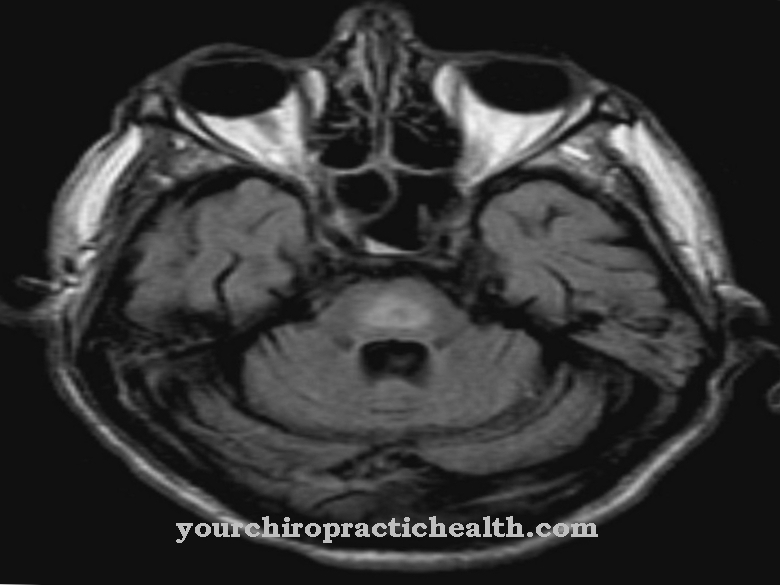
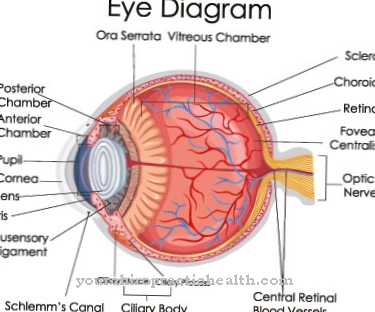
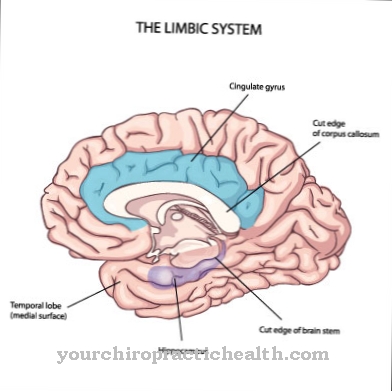
.jpg)
.jpg)
.jpg)




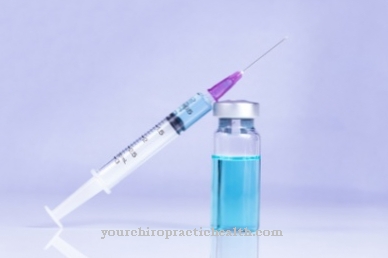
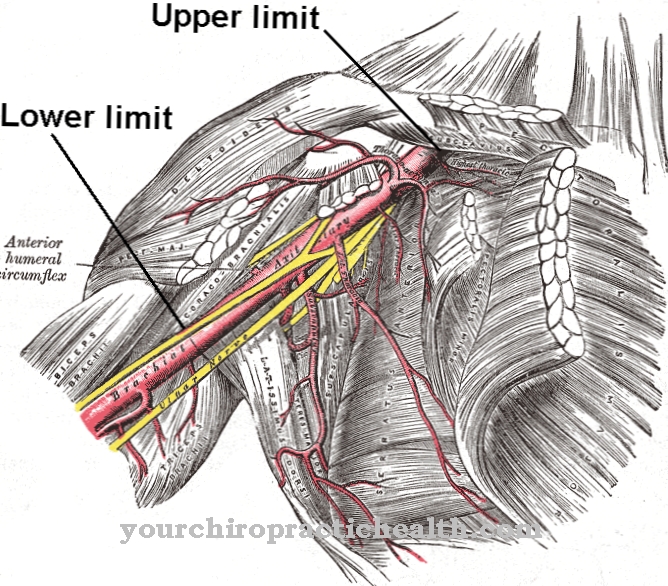




.jpg)




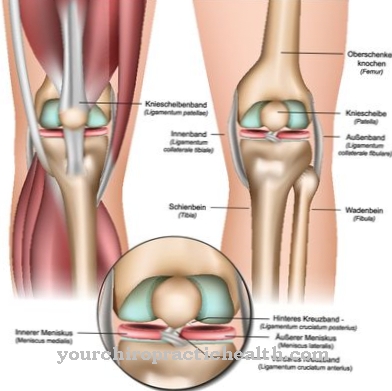

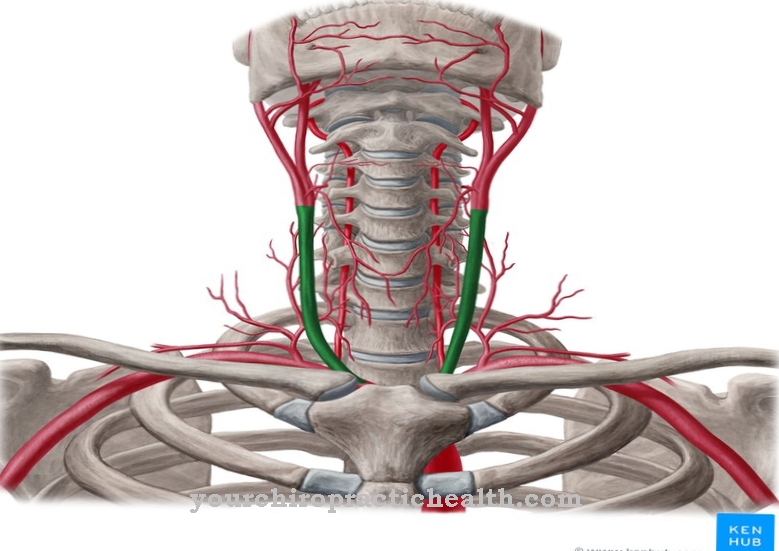
.jpg)

